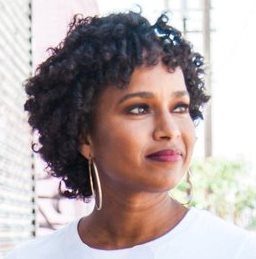If you’re a parent of a mixed race teen, there are 5 things you should not say to them, according to a mixed race licensed psychologist who coaches parents of mixed race children.
The population of mixed race people is growing year by year. As of 2020, there were over 33.8 million people who checked off more than one box on the U.S. census — a 276% percentage increase from the 2010 census.
Many of those mixed race people are under 25 and much more vocal about their mixed race heritage.
They show a defiance about being expected to choose one box to identify themselves.
While Gen Z and other younger mixed race people are much more aware of their own identity and refuse to be confined to societal norms, many people still have not acknowledged the mixed race experience.
They continue to interact with mixed race youth using antiquated views of race and have not challenged the stereotypes they hold about this group of people.
Many times, this is within the mixed race teen’s own family.
Below are five statements often said to people who are mixed race which should be retired as of yesterday.
“In This Family, We Don’t See Color”

Shutterstock/Lisa F. Young
Trying to be colorblind sounds great and feels really nice, but does not help anyone.
More importantly, it does not help your teen navigate their mixed race identity in a world that does not quite have a clear place for them yet.
Prepare yourself to initiate a conversation with your teen about “color” and being seen.
By having an interracial union, you were fully aware that you were partnering with someone who was not in your same racial/ethnic group.
You may have had to navigate relationship conflict because of this. Now it’s time to help your teen navigate the societal conflict surrounding their identity.
Everyone sees color. We need you to validate your child and make sure you see theirs too.
“There Is only One Race, the Human Race”
We are all human, this is true. However, responding with this statement when presented with a conflict that was based on race is invalidating.
It is not helpful for your teen who wants to discuss their experience.
We are all humans with different hair color, eye color, different heights, different sexual anatomy, etc.
We are also humans with different skin colors, and this country has built a society on the (wrong and harmful) idea that skin colors should be placed on a hierarchy.
If your mixed race teen needs to talk about oppression, racism, colorism or privilege (and they all do), join them!
- Learn what you need to learn to join the discussions.
- Learn your place in this society and what privileges you have or have not been given.
“You Can’t Be [racial/ethnic group] Because You Don’t Look [racial/ethnic group]”

Freepik.com
This is an unfair statement to make to a mixed race teen. Why?
Well, for starters they are already a product of two different racial/ethnic groups.
So by virtue of being born, they CAN claim to be all racial/ethnic groups, because they already are.
But more importantly, a teen did not choose their phenotype. Phenotype is how we “look” — our physical characteristics like eye color, height, hair color, skin color).
So telling a mixed race kid they can’t be a member of a racial/ethnic group because their phenotype doesn’t look like whatever you think the “typical” look for that group is, just is not how families work.
Are you allowed to be connected to both sides of your family if you only look like your mother’s side? Of course you are!
This statement stems from a belief that we must identify with only one racial “box” — and that we must fit the typical look to choose that box.
This belief stems from an ugly past in America where we decided that you could not claim to be “white” if you had any other “blood” in your family line.
So even “one drop” of non-white blood meant you could no longer be white and must be categorized as a minority group (Native American, Black, Asian, etc.).
Over time, many groups adopted this “one drop” way of thinking.
It’s time to retire this belief. Race is a human invention that was not based on science and cannot be “found” in DNA.
A mixed race teen should be affirmed as members of all groups in their family because that is their birthright.
“You’re Prettier/More Handsome Because You’re Mixed”

You might be thinking, “Wait — but this is a compliment! My teen really is attractive!”
Well, all parents think their teen is attractive, and I’m not here to argue with you.
But, unfortunately, mixed race people are often made to feel like an “other” for their “exotic” looks.
Calling a mixed race person “gorgeous” or “exotic” is also a way to sexualize and objectify them, and we don’t want to do that.
“It is also good to be aware that the same features you might praise as a parent are what might draw a lot of negative attention for your teen.
Their appearance as “different” or “exotic” might be the reason they are asked, “What are you?” so often, or not granted entrance to a group they feel they belong in.
Also, you also don’t want your teen to view themselves in a sexualized way before they understand all the consequences that can come with that.
By all means, compliment your teen! But compliment them as you would any other person and avoid referencing their mixed racial background as the reason why.
“You’re Probably Confused or Having an Identity Crisis”
This is an old stereotype that is revisited in our movies, TV shows and other forms of media.
People think a mixed race person is “confused” because they don’t know what group to choose or how to identify themselves according to our five “race boxes.”
But they are missing the key feature of that crisis: having to choose ONE.
There is no way for a mixed race person to choose just one group when they are already connected to two or more!
The only “confusion” comes when a mixed race person tries to play the game that society designed – – the game that says everyone somehow fits nicely and neatly into one racial category.
The mixed race person realizes what an impossible request this is, but due to societal pressure, may try anyway — and voila — a conundrum presents itself.
If nothing else, the mixed race person is “confused” about why society would expect the impossible.
It would be better for society to make space for a mixed race person to be all of who they are — to check off all boxes that apply — which would encourage freedom of identity and validation of their family makeup.
And since society hasn’t, let’s make sure their family at home does.
As society continues to progress, mixed race teens are making their voices heard and asserting that they will not adhere to old expectations of identity that no longer serve them and are not based in any fact.
More parents are standing behind their children and affirming their authenticity and self-awareness.
We would do well to follow their lead.
 Dr. Jennifer Noble (Dr. Jenn) is a licensed psychologist in private practice, coach for parents of mixed race children and a college professor. She’s the creator of The Mixed Life Academy, an online coaching community for parents of mixed race kids. Her passion for identity freedom is fueled by her lived experience as African American and Sri Lankan.
Dr. Jennifer Noble (Dr. Jenn) is a licensed psychologist in private practice, coach for parents of mixed race children and a college professor. She’s the creator of The Mixed Life Academy, an online coaching community for parents of mixed race kids. Her passion for identity freedom is fueled by her lived experience as African American and Sri Lankan.
.










































